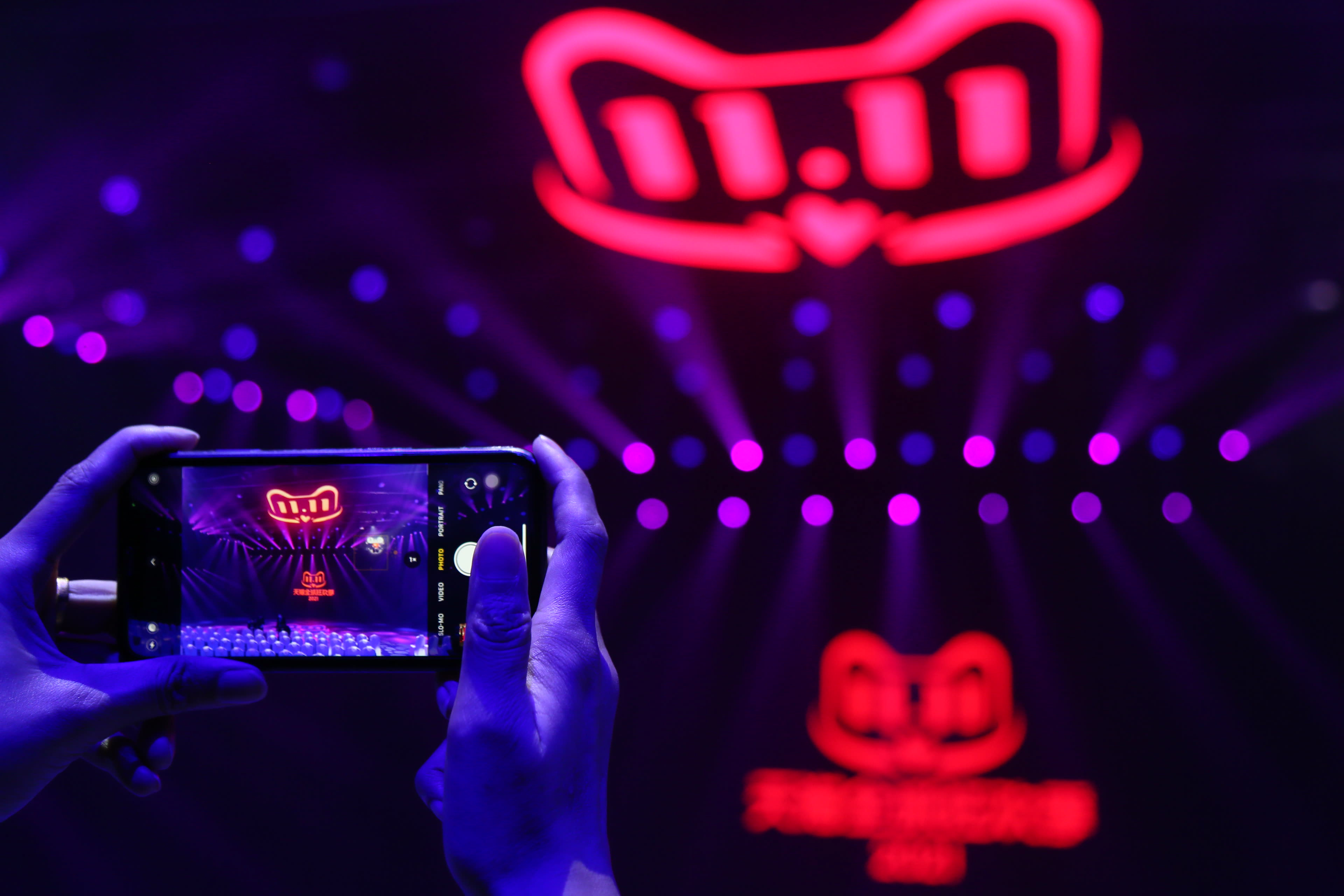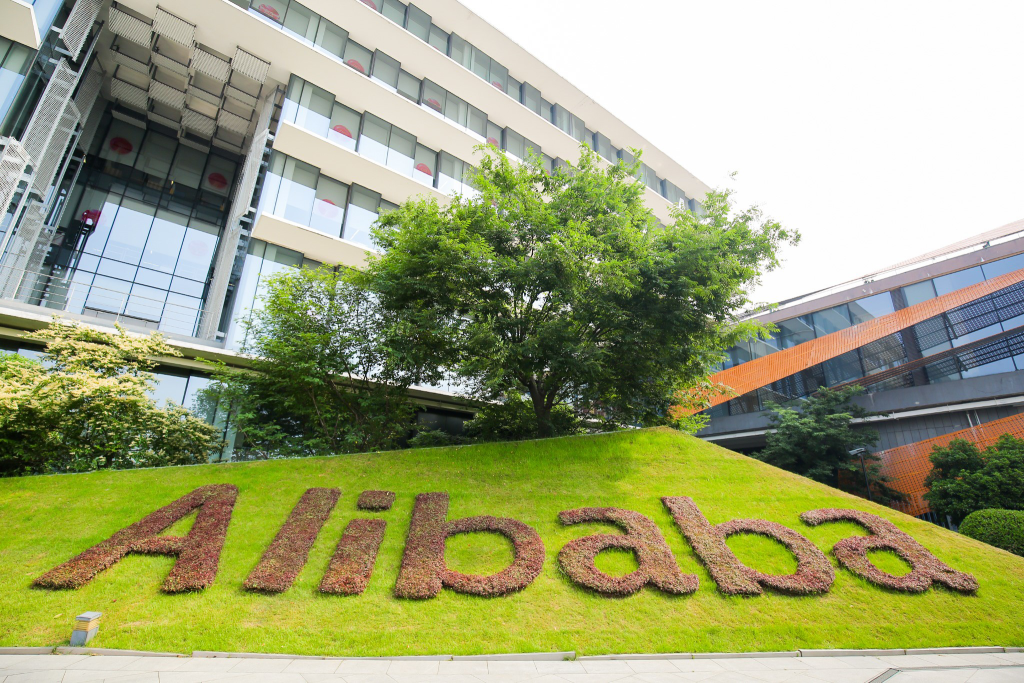


11.11 shopping festival kick-off event in Hangzhou. to credit: Alibaba Group
As the world’s largest shopping festival 11.11 reached its climax on Thursday, international brands are already mulling how they can turn a short-term bump in sales into year-long success in the world’s second-largest economy.
The shopping gala dwarfs Cyber Monday and Black Friday combined and keeps on growing year after year. A record-breaking 29,000 brands took part via Alibaba Group’s Tmall Global this year.
Retailers have widely used gross merchant value (GMV) as a yardstick and investors have applauded the ever-swelling metric. Between 2014 and 2019, as more shoppers participated, the compound annual growth in 11.11 GMV for the sector was 35%.
This year is looking like another blockbuster sales event based on early data. One hour after the festival sales opened on November 1, over 2,600 brands topped the GMV they had racked up on the same day last year over Alibaba’s marketplaces Tmall and Taobao. By November 10, 382 brands had surpassed RMB100 million (US$15.6 million) in GMV, including Cupertino, California-based Apple and Clichy, France-headquartered L’Oréal.
However, e-commerce in China is no longer limited to a single event, even one as enormous as 11.11. Digital shopping has become a mainstream activity from Beijing to China’s smallest cities throughout the year. Retailers are seeking ways to turn the traction they win during their festival marketing campaigns into a steady revenue stream.
There is a new definition of 11.11 success, consultants at Bain & Co point out in a new report, one that’s anchored in customer loyalty as well as customer acquisition.
“This shift in mentality will really help you win not just on day one, i.e 11.11, but the remaining 364 days of the calendar year as well,” James Yang, a Partner at Bain & Co and one of the report’s authors, told Alizila in an interview.



Finding Your Tribe
Retail in China is approaching a point at which there can be no growth strategy without a loyalty strategy, offering retailers entering next year’s 11.11 an even stronger position.
The most successful retailers will find ways to foster deep consumer loyalty and ease reliance on undifferentiated discounting, winning users that count as genuine fans, according to Bain’s report.
This means that executive teams should prioritize metrics other than GMV, such as customer lifetime value and Net Promoter Score; that way they can start building a more sustainable and defensible proposition for the long term.
These customers can be the bedrock of renewed strategic differentiation: a survey conducted by Bain suggested that a retailer’s 11.11 promoters tend to keep spending heavily throughout the year on the same platform.
Change Is Constant
While other digital platforms and retailers have joined 11.11’s originator Tmall in promoting the shopping festival, the game is rapidly changing.
Alibaba continues to enhance the customer experience, partly through building up the attractiveness of its loyalty program, 88VIP, said Bain.
The loyalty benefit is twofold: Alibaba shoppers see more products that they want on the platform, and the products become more differentiated from the offerings of rival platforms.
Alibaba said that it had counted 32,000 consumers that have participated in 11.11 for 12 consecutive years between 2009 and last year.
The program offers members benefits pulled from across the Alibaba ecosystem, such as free access to video streaming on Youku, discounts on food delivery through Ele.me , and cash-back vouchers for the online travel platform Fliggy.
Less obviously, Alibaba’s close cooperation with brands and manufacturers is also a loyalty lever. Brands get digital insights from Alibaba and digital tools to make sense of them, creating a better shopping experience that binds customers more tightly to the platform.
Likewise, manufacturers get insights about Alibaba shoppers that allows them to know exactly what consumers want, and tailor products accordingly.
Retailers have focused on expanding their China footprint and customer acquisition but now they should start switching gears.
“It’s a watershed moment,” said Bain’s Yang.





